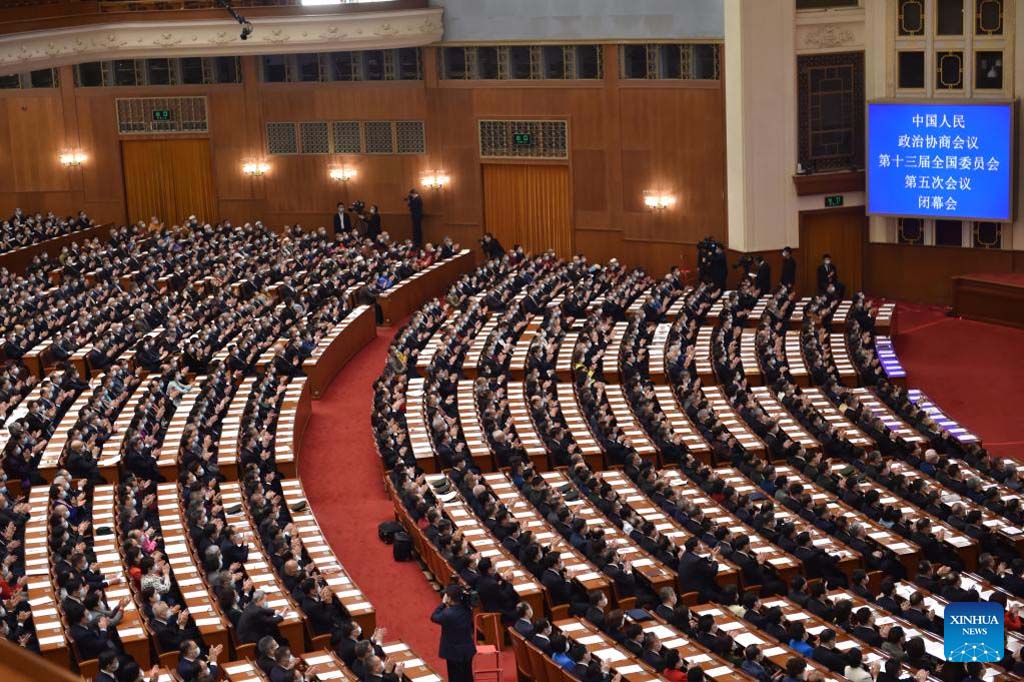Pakistani Expert Sarmad Ali: China Boosts Global Economic Growth


China’s annual political season arrived in early March as expected. The ongoing sessions of the National People’s Congress (NPC), China’s top legislature, and the National Committee of the Chinese People’s Political Consultative Conference (CPPCC), China’s top political advisory body, brought NPC deputies and CPPCC members from all walks of life from across the country together to discuss critical issues for the country. On March 5, Chinese Premier Li Keqiang delivered a government work report highlighting China’s economic and social development in 2021 and setting new targets for 2022. Sarmad Ali, managing director of Jang Media Group, Pakistan’s largest media house, and president of the All Pakistan Newspapers Society, gave an exclusive interview to China Pictorial (CP) to share his opinions on China’s development and its significance for the world.
CP: China’s GDP passed the 110-trillion-yuan (US$17.3 trillion) threshold in 2021, expanding 8.1 percent, which made it one of the fastest-growing economies in the world. What role do you expect China to play in addressing the increasing volatility in the global economy?
Sarmad Ali: China has been one of the pivotal drivers of world economic growth. As a trade powerhouse, China lifted a huge population into the middle-income group and created massive market opportunities. Through working with other countries in global markets and value chains, China has helped produce economic fruits around the world which have nourished historic progress in reducing poverty in developing nations. For instance, China is now supporting Pakistan with offers to build turnkey infrastructure projects including hydroelectric plants and railways. China’s growing influence is making its role in the global economy increasingly important.
CP: In 2021, China’s foreign trade of goods rose 21.4 percent to 39.1 trillion yuan (US$6.2 trillion), and its actual usage of foreign investment expanded 14.9 percent to a record high of 1.15 trillion yuan (US$182 billion). This year, China is set to further open to attract foreign investment and facilitate international trade, especially in the service sector. How significant are these developments for Pakistan and the South Asia region at large?
Ali: South Asia is a dynamic region. You will find the difficulties of a developing region as well as fabulous opportunities. The region struggles with conflict, economic instability, and extensive human development challenges. China’s Belt and Road Initiative (BRI) addresses many of the most pressing needs of the region by facilitating some of the most ambitious infrastructure projects ever conceived that now stretch from East Asia to Europe. The China-Pakistan Economic Corridor (CPEC) could potentially be the crown jewel of the BRI. It would bring numerous infrastructure and energy projects to Pakistan that would greatly benefit its economic development. China has also launched similar projects in Bangladesh, India, Sri Lanka, Malaysia, Indonesia, Myanmar, Kazakhstan, and many others. The accompanying trade and investment opportunities not only help improve living standards, but also create new jobs throughout the target regions.
CP: China’s commitment to peaceful development and win-win cooperation for common prosperity was reaffirmed in this year’s government work report. Do you think this matters to the international community, considering the current complicated international situation?
Ali: Clearly, China’s global role is gaining increasing attention worldwide. From investment in key industries to humanitarian response to the COVID-19 pandemic, China has put its ideas for common prosperity for all into practice. As China’s influence grows, however, the United States and some other Western countries have been designing their diplomacy and strategies with China as a rival. In fact, China’s opening-up policy has been promoting growth and prosperity around the world, and China has been standing up for developing countries that had been ignored in the past.
CP: In 2021, China’s energy consumption per unit of GDP dropped by 2.7 percent from the previous year. The government work report noted a series of measures to support energy-saving and environment-protection industries and innovation in green technologies to bring China closer to its carbon peak and neutrality goals. What contributions do you think China will make to the UN Sustainable Development Goals and to addressing climate change?
Ali: In 2015, China announced the “Six 100s” initiative for international cooperation, which primarily consists of 100 poverty alleviation programs, 100 agricultural cooperation programs, 100 trade facilitation programs, 100 programs for ecological protection and combating climate change, construction of 100 hospitals and clinics, and construction of 100 schools and vocational training centers. As part of the plan, China has been taking climate mitigation action in the shift to a new development model that advances environmental protection. China is a leader in addressing the climate-related needs of developing countries and operationalizing the Green Climate Fund (GCF). China has also worked on pollution, water conservation, empowering rural areas, and improving health systems while carrying out extensive educational reforms including provision of training and vocational centers.
CP: The system of people’s congresses is considered an important institutional vehicle for realizing whole-process people’s democracy in China. What’s your opinion?
Ali: The NPC meets in session every year to review policies from the past year and empower officials to make better decisions designing a roadmap for the coming year. NPC deputies from different walks of life gather to discuss key issues and make important decisions. I consider it a promising step for the world to see the country’s democratic process followed in its truest form.